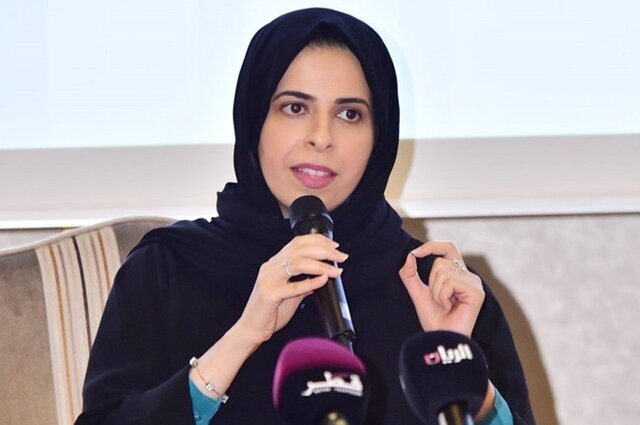Qatar says Iran-Saudi dialogue is essential

TEHRAN - Qatari Foreign Ministry spokesperson Lolwah R.M. Al-Khater has said that dialogue between Iran and Saudi Arabia is “essential”.
“Solving differences through constructive dialogue and diplomatic channels is essential,” ISNA quoted her as saying in a conference.
Imran Khan, the Pakistani prime minister, visited Tehran on October 13 to “facilitate” possible dialogue between Iran and Saudi Arabia which have been at loggerheads over a number of issues including the Saudi war on Yemen and Riyadh’s support for Trump’s anti-Iran moves.
He met with Leader of the Islamic Revolution Ayatollah Ali Khamenei and President Hassan Rouhani.
Khan also visited Saudi Arabia on Tuesday.
The Pakistani prime minister visited Iran as the tension in the region is getting more complicated. On October 11, an Iranian oil tanker was struck by two missiles in the Red Sea, 60 miles away from Saudi coastlines.
Khan has said that he is making an effort to reduce tension between Tehran and Riyadh. Prior to the recent visit to Tehran, he held talks with Saudi Arabia’s leaders in Riyadh and Rouhani at the United Nations in September.
Pakistani Foreign Minister Shah Mehmood Qureshi has said that Iran and Saudi Arabia should bridge differences.
In an interview with Aaj News, Qureshi said that Pakistan will continue efforts in line with reducing tension in Iran-Saudi Arabia relations, ISNA reported on Tuesday.
UN spokesman Stephane Dujarric has said that Antonio Guterres, the UN secretary-general, welcomes Khan’s initiative to de-escalate tensions between Iran and Saudi Arabia.
Dujarric told reporters at the regular noon briefing in New York that the UN chief welcomes any such effort “as a matter of principle”, Associated Press of Pakistan reported last week.
Ammar al-Hakim, leader of the Iraqi National Wisdom Movement, has also expressed support for Pakistan’s initiative to mediate between Iran and Saudi Arabia.
“We praise and support initiative of Imran Khan, the Pakistani prime minister, on mediating between Tehran and Riyadh and ending tension between these two Muslim countries and bringing them into the negotiating table,” ISNA quoted him as saying in a message on Saturday.
On October 12, the Iranian Foreign Ministry said Tehran is ready for a talk with Saudi Arabia with or without a mediator.
During a joint press conference with Khan in Tehran on October 13, Rouhani, without mentioning Saudi Arabia, suggested that Iran will give a positive response to “good intention”.
Rouhani said Iran “welcomes efforts by the Pakistani prime minister to settle tensions in the region” and “restore peace and stability”.
During a separate meeting with Khan, Ayatollah Khamenei said that ending the war on Yemen will have positive effects on the Middle East region.
The Leader said, “The Islamic Republic of Iran presented a four-point plan to end the war in Yemen a long time ago and if this war ends in the right way, it can have positive effects on the region.”
During his visit to the United Nations headquarters in New York late last month, Rouhani unveiled Iran’s initiative, called the Hormuz Peace Endeavor (HOPE), for peace and security in the Persian Gulf region. In his plan, Rouhani invited all regional countries to join the peace plan.
“Based upon the historical responsibility of my country in maintaining security, peace, stability and progress in the Persian Gulf region and Strait of Hormuz, I would like to invite all the countries directly affected by the developments in the Persian Gulf and the Strait of Hormuz to the “Coalition for Hope”, meaning Hormuz Peace Endeavor,” Rouhani said in his UN speech on September 25.
NA/PA
Leave a Comment